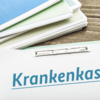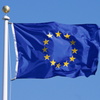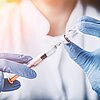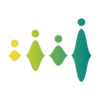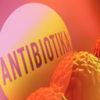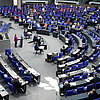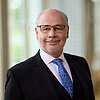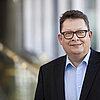Protection against infection in Germany
Experts all agree that there is no danger to the German population. Germany is nonetheless very well prepared to treat any persons who become infected with Ebola virus disease.
The legal basis for the control of infectious diseases is provided by the Protection against Infection Act (Infektionsschutzgesetz). At local level, the individual Health Office of the Federal Land con-cerned takes the necessary measures to protect the population. The following factors play a role in guaranteeing the safety of Germany's population.
Network of Medical Competence and Treatment Centres for Highly Contagious, Life-threatening Diseases
Since 2003, Germany possesses a network of medical competence and treatment centres to care for persons with highly infectious diseases (STAKOB). The clinics are distributed all over the country and the system is so organised that patients can be transported quickly and safely to one of the fa-cilities, the disease diagnosed and the necessary treatment provided. Very well-trained personnel stand ready to fulfil this task. The Federal Lander are responsible for guaranteeing a high level of appropriate training and simulation exercises at all of these facilities.
Specialised airports
Germany possesses a number of specialised airports (Hamburg, Düsseldorf, Frankfurt, and Munich) that are prepared to manage highly contagious diseases among passengers. If a suspected case arises in an aircraft, the airplane is redirected to one of these airports. The airports have special emergency plans and special spaces at their disposal for such cases. This allows passengers to be isolated and examined quickly and, if necessary, transferred to a suitable hospital. To enable this, regular training and simulation exercises are conducted under the supervision of the competent health authorities of the Federal Laender.
Timely isolation
The Laender, which in Germany are responsible for ensuring protection from infection, have acted professionally in all of the suspected cases that have occurred hitherto, and have prevented every conceivable infection in advance by effecting the timely isolation of all suspected Ebola cases. In all of the cases, it was possible within a very short period of time to exclude a genuine Ebola infection.
Regular training measures
The Robert Koch Institute conducts regular training measures for the public health services and the rescue services on how to use protective equipment and manage highly contagious diseases. In addi-tion, the Robert Koch Institute has made comprehensive information available for the Federal Laender and for physicians on how to handle Ebola.
Information measures
All doctors, hospitals and pharmacies were and are being provided with information on how to manage Ebola by the National Association of Statutory Health Insurance Physicians, the German Hospital Federation and the Federal Union of German Associations of Pharmacists.
24-hour emergency service
Both the Bernhard Nocht Institute for Tropical Medicine and the Institute for Virology of the Uni-versity of Marburg provide a 24-hour emergency service for diagnosis-related questions. A 24-hour hotline has been set up at the Robert Koch Institute for any members of the expert public who need advice on suspected cases. The hotline can be reached through the operator.
Information for passengers
Information for passengers can be found on the website of the German Foreign Office (Travel and Safety Information, Countries A – Z). Any person who has spent time in the Ebola-affected regions should be on the lookout for signs of the infection and consult a doctor should any disease symp-toms arise.
Exchange of information and experience
Following on from the exchange that, since May, has been taking place regularly between the Fed-eral Government and the Federal Laender, an intensive exchange of information and experience on the situation regarding Ebola preparedness and response measures was held on 6th November. The meeting, held at the Federal Ministry of Health at the invitation of Federal Minister of Health Hermann Gröhe was attended by the Ebola Special Representative of the Federal Government, rep-resentatives of the Federal Ministries, the Federal Laender and a number of aid organisations. This mutual exchange ensures that all of the agencies responsible for protection against infection are as up-to-date as possible, that the necessary preparations on the ground can be made and emergency procedures organised and updated as needed. At the same time, on this occasion, it provided an op-portunity for participants to be informed of the current situation in West Africa and about how to manage returning health care workers.
Together with the Federal Laender, the Robert Koch Institute, which is responsible for protection against infection on the ground in Germany, has drawn up recommendations for managing return-ing health care workers. These can be used to instruct the individual competent local health au-thorities that are required, pursuant to the Act on Protection against Infection, to take concrete measures in individual cases after assessing the health hazard. The recommendations can be found on the website of the Robert Koch Institute.
Ebola virus disease framework
The Robert Koch Institute also co-operated with the health authorities of the Federal Laender and the scientific medical societies to draw up the Ebola virus disease framework. The framework pools and updates the existing information, recommendations and provisions governing the prevention of epidemics and the clinical management of persons who have been infected with Ebola. It has been shared with the Federal Laender, which are responsible for protection against infection in Ger-many, for further transmission to all of the competent agencies at local level. This ensures that eve-ryone who is in a position of responsibility has the necessary information so as to be able to take appropriate measures on the ground in their area of responsibility. The framework can also be found on the Institute's website.
Additional information
-
More assistance in combating Ebola
Article on the search for medical personnel to assist in the fight against Ebola
-
German Red Cross's (DRK) online-application system for aid missions
Website of the DRK to register in the DRK HRnet database
-
World Health Organization (WHO)
Website of the WHO on Ebola programme
-
European Centre for Disease Prevention and Control (ECDC)
Official website of ECDC
-
RKI: Ebola virus disease (EVD)
Website of the Robert-Koch-Institute about Ebola (in English)
-
RKI: Vaccinations
Article on RKI website: "The 20 Most Frequent Objections to Vaccinations – and Responses"
-
WHO: FAQ on Ebola virus disease
Website of the WHO wieht frequently asked questions on Ebola virus disease









